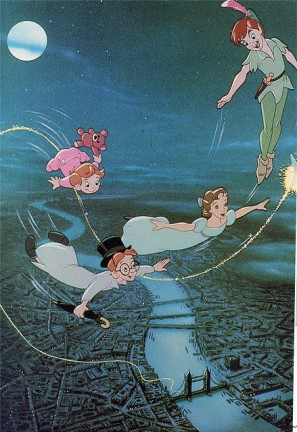
“Most of us come into this world amidst a frenzy of pain and emotion and unpredictability, and too many of us leave in the same way.”
I came across this book by pure luck and I can say I’ve never been luckier in my life. It was basically plucked off the shelves in a suburb library to make up the number of books I was loaning (because if you are allowed to borrow six books, by the Gods you borrow no less than six books.)
Three days and 200 troubling pages later, I glanced up from the final page a changed person.
Books which I can solidly admit to be life changing are few and far in between. This is one such book.
If I could have my way, I would include this as a compulsory read for all medical undergraduates.
Samantha Nutt, M.D. narrates her experience as an aid worker in conflict zones for the past fifteen years. The chapters are aptly divided by the war-torn regions she has worked in, namely Somalia, Haiti, Iraq, Congo, Liberia and Afghanistan. It is more a commentary than a memoir as she keeps the focus tight on issues assailing humanitarian work rather than glorifying her contributions and promoting War Child, an international humanitarian NGO she founded.

Nutt is perceptive of the real problems behind humanitarian aid and the detrimental state of current affairs. She expertly distills otherwise convoluted interconnections between international power play, grass root aid efforts and local culture into simple, easy-to-digest words. Adopting a no-nonsense approach, she does not hesitate in taking a hard hitting stand on these atrocities, waging humanitarian wars that would span decades with a tireless passion and iron will.
She openly criticizes how disaster crises are seized upon as publicity opportunities and how organizations fight for space to set up their tent when providing relief, only to leave when the world loses interest in these disaster-stricken areas, leaving no long-lasting impact. She suggests that there are many small, lesser known organizations that deserve more support and urges readers to donate responsibly and know where and what their money is going into.
By putting forth issues which are rarely seen by the world, Nutt shows us the way to be a better aid worker, or a wiser donor.
There are plenty of moving personal accounts with fellow relief workers, the victims she is fighting for and terrifying encounters with the local militia.
One riveting encounter was during a spontaneous visit to one of Somalia’s resettlement camps as a UN aid worker.
Curious to find out why the local womenfolk would rather make the miles out to a stagnant creek to collect water rather than utilizing a new drinking water pump set up in the center of their settlement, she is suddenly ambushed by a group of shot-up, drunk adolescents toting AK-47s.
“You journalist?” they asked, holding her camera.
“No, no journalist. Doctor. Children here in camp very sick. I can help.”
“You UN?”
“Yes, UN.”
“The UN help no one in Somalia.”
“I want to help.”
“Then leave Somalia.”
A notably poignant recollection is her friendship with Margaret Hassan, a UK-born Iraqi front lining humanitarian work for more than 25 years. She was working under Care International and was a vocal critic of UN-imposed prohibitions. A champion for the Iraqi people, she notably brought leukaemia medicine to cancer-stricken children in Iraq. 
In October 2004, Mrs Hassan was kidnapped. Hundreds of protesters took to the streets of Iraq. Even then al-Qaeda leader, Abu Musab Zarqawi, appealed for her release, although Hassan never claimed allegiance to anyone but the people of Iraq.
A month later, Al-Jazeera received three videos from her captors, one of which was released showing Hassan begging then PM Tony Blair to withdraw British troops from Iraqi soil. The second, Al-Jazeera reported, showed Hassan being prompted to recite a text with false claims that she was spying on Iraqis. The third, which was never released, showed Hassan executed by gunfire.
Her killers have not been found until this day. Her body remains missing.
Nutt enlightens the readers with various difficulties faced by aid workers, including a struggle to restore a felicitous identity blemished by constant military presence. “For aid agencies on the ground in Somalia (…) the stubborn image of foreign soldiers storming the beaches of Mogadishu brandishing the latest American artillery under a relief banner had damaged local relations,” she writes. This robs the “aid community” of the politically neutral and protected stand they needed to operate from.
She points out also these impoverished war-torn countries are able to gain easier access to the weapons market than to vaccinations, clean water and shelter. 73% of all global arms-transfer contracts belong to developing countries, with exponential sales growth observed in the small arms market—rifles, machine guns, hand grenades.
She documents how the needs of Somali civilians no longer take precedence over the abject violence that rages across its barren, bullet-riddled expanse, as international aid consideration wanes in this country that is more interested in squabbling among themselves than actually saving the people.
“War, and the pursuit of war, destroys us. It turns teenagers into killers, neighbours into génocidaires, and politicians into executioners. War is humanity at its most primitive, despite our attempts to dress it up, distance ourselves from it through technology, and frame it in acceptable terms. (…) In the end, all wars are only one thing: people killing people.”
My personal favourite section is her open criticism on “volunteer tourism” or voluntourism, a booming profiting industry for idealistic eager foreigners who are enticed by promotional pictures of volunteers handing food packets to smiling doe-eyed children with bloated, ascitic abdomens. What many are unaware of is how commercialized volunteerism has become.
Perhaps this is because I share a similar apathetic disapproval with Nutt for such ventures.
As Nutt succinctly explains, these attractions make a spectacle out of poverty. Funds are directed to serve the clients, providing clean sanitation, comfortable accommodations and good food, with little or none going to fund the impoverished communities. It’s for people who are deterred by reputable volunteer organisations which require all volunteers to undergo proper rigorous screening and training programs before allowing them on the field. “These are programs open to anyone willing to foot the bill,” Nutt writes.
Local conditions are sometimes even maintained in a perpetual dismal state to lure more donations from your pockets. Volunteers arrive eager to “make a difference”, upload a few dozen Instagram photos doing “humanistic work” and forge bonds with the local children, only to sever them without second thought when their ride back to the city arrives. These temporary bonds, forged with lonely orphaned over a span of a week or two, are routinely severed and could be nothing but detrimental to their social and emotional well-being. Imagine yourself, impoverished and orphaned, seeing two-week cycles of these blemish-free cheerful foreigners showing bits of kindness, only to never see them again in your life, while they return to their comfortable homes gushing about their unforgettable, eye opening experience in “the jungles.”
Nutt writes it best,
“Repeated short-term attachments can leave young children with feelings of abandonment that impede their social development. Visitors to these programs often come away with a sense of how friendly and happy these children were, and it is common to see photos and promotional videos on voluntour websites of foreigners ferrying affectionate children about on their shoulders and backs. But what creates an extraordinary experience for the visitors—hyper-friendly pre-schoolers who make them feel immediately wanted—is a symptom of the children’s repeated psychological trauma. It is normal for young children to be cautious, even mistrustful of strangers. That children in these programs are so emotionally indiscriminate should be heeded as a warning that voluntour programs are failing children.”
While the author acknowledges that these opportunities are great early exposures for young people to humanitarian work, admitting that she herself had similar beginnings, she can’t help but entreat for more ethical, responsible, meaningful and sustainable development. These communities don’t need another latrine dug out for them; they need jobs, training programs, formal education. “With every school built by well-meaning Western volunteers in villages in Africa, there is one less opportunity to provide employment and skills training to young people from such communities, who are also desperately seeking such experiences.”
Nutt exposes the pressure under which aid organizations are compelled to show donors tangible results, like a new classroom or a new latrine, taking away much needed attention on more urgent, sustainable causes like investing into education, legal justice, microcredit start-ups, helping countries establish self-governance. With such an approach, we’ll always be wiping away the mud from the flood, without finding solutions to the flood itself.
Amazingly, despite the bleak issues it touches on, the book is never defeatist. If anything, it seeks to empower the reader with new perspectives, and offer realistic solutions to existing issues. Nutt dedicates the last chapter to highlighting ways in which the reader can effectively make a difference.
So if you aspire to venture into the field of aid work, or you want to help responsibly, Damned Nations is the book for you.














